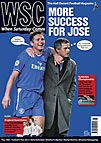 James Medhurst takes us back to the turn of the century when the Southern League was teaching the Football League a thing or two
James Medhurst takes us back to the turn of the century when the Southern League was teaching the Football League a thing or two
The long-term significance
This was the peak season of the Southern League as a credible competitor to the Football League, characterised by Tottenham’s success in winning the FA Cup, the only non-League side to do so since 1888. The strength of the eventual champions, Southampton, was also demonstrated by an England international against Ireland at The Dell, featuring three Saints players, plus one each from Bristol City and Millwall, a record Southern League contribution to the national team. However, it was also the beginning of the end, as second-placed City successfully applied to join the Football League, to be followed in later years by Spurs and Fulham. In 1920, the top division of the Southern League was swallowed up, as Division Three (South).
Story of the season
Southampton looked like being runaway champions after winning all but one of 14 games between September and January. They stuttered towards the end of the season, but did well in crucial matches, with a 1-1 draw at Bristol City in March and a 2-0 home victory over Portsmouth on Easter Saturday. In the end, just three points separated the top three teams. Distracted by their Cup run, reigning champions Spurs did not play their last fixture until three weeks after the Saints. Brentford were promoted as champions of the Second Division after drawing 0-0 in a test match against Swindon, who also remained in the top flight, while Grays United, who finished second, were denied promotion when they refused to play extra time in their test match against Watford, claiming that it would be too dark to get home.
For the record books
A number of benchmarks were set by the historic win by Spurs in the FA Cup final. The first match against Sheffield United, at Crystal Palace, attracted an attendance of more than 110,000, then the largest crowd for a final, and the former Portsmouth striker Sandy Brown scored a total of 15 goals during the competition, a record that still stands. Bristol Rovers achieved the best result of the season and the biggest league win in their history, 10-0 against Gravesend.
Same place today
Of those clubs that completed their fixtures, only two never joined the Football League. Gravesend merged with Northfleet in 1946 and their offspring are now in the Conference, and Kettering are just below them in the Nationwide North. Chatham, who dropped out halfway through the season, are the lowest ranked and are the only club still in what’s left of the Southern League, in the Eastern Division.
Moved furthest away
Nine of the clubs have gone on to taste top-flight football at some point and Portsmouth and Tottenham have won championships. Along with Southampton, they are also current members of the Premiership, a more successful rogue alternative to the Football League.
Went on to greater things
Billy Wedlock ~ Bristol City’s England centre-half made his club debut, his only Southern League game.
Vivian Woodward ~ The legendary centre-forward was an Essex amateur, who joined Spurs the next year then scored 29 goals in 23 England games.
Ashton Gate and Fratton Park ~ At the start of the season, Bristol City merged with neighbours Bedminster and inherited their ground, while Portsmouth completed the building of their stadium.
FA Cup ribbons ~ Tottenham introduced this tradition after their 3-1 victory in the final replay at Burnden Park.
Disappearing from view
Edgar Chadwick and Alf Milward ~ After nearly a decade at Everton, the pair resumed their partnership at Southampton, scoring 26 goals between them. Milward left at the end of the season, while Chadwick went to Liverpool the following year.
Amateurism ~ Thames Ironworks turned pro, as West Ham, the last Southern League First Division team to do so, though amateur clubs remained in the tier below and CB Fry took no pay at Southampton.
Kent clubs ~ Gravesend followed Chatham by resigning, leaving New Brompton, now Gillingham, as the only sizable team.
From WSC 219 May 2005. What was happening this month